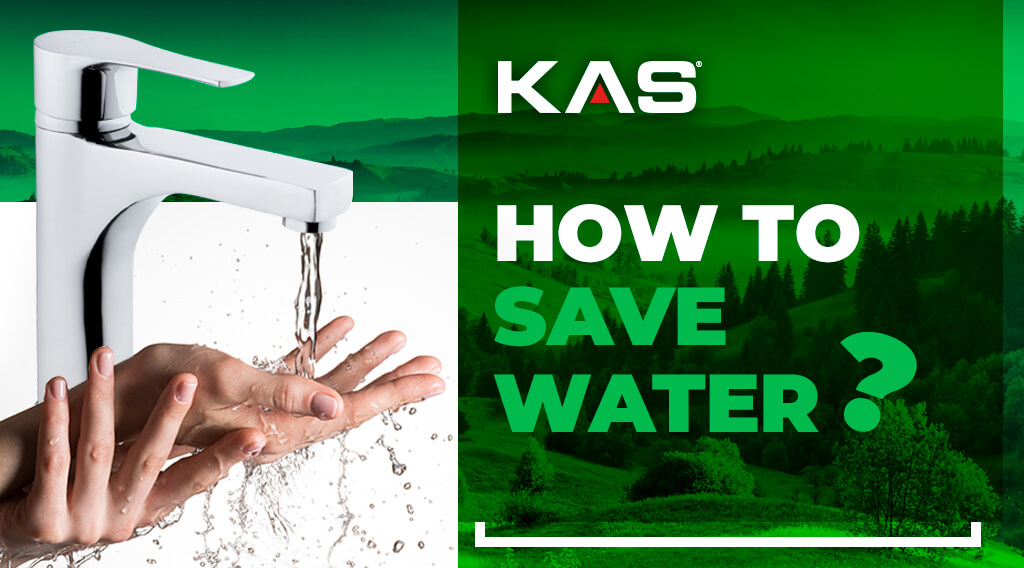How to Save Water?
In today’s world, water has become one of the most valuable natural resources. Due to limited water resources and increasing demand for water, water conservation not only provides economic advantages but also supports environmental sustainability. In this blog article on how to save water, we will provide a comprehensive guide to the importance of water conservation on both an individual and societal level, along with effective methods.

Why is Water Conservation Important?
Preservation of Natural Resources: Water is essential for the survival of all living beings on Earth. Effectively using limited water resources to provide clean water for future generations is crucial to maintaining ecosystem balance.
Energy Savings: Heating, cleaning, and distributing water require energy. Reducing water consumption through conservation contributes to the efficient use of natural resources and energy.
Preventing Water Scarcity: Water scarcity is a pressing issue in many regions. Protecting water resources and practicing conservation can help prevent future water shortages.
Savings on Bills: Reducing water consumption at home positively impacts your family budget by lowering water bills.
Practical Tips for Water Conservation at Home
1. Use Sensor Faucets and Low-Flow Showerheads
Having water-saving features in your faucets and showerheads can significantly reduce your water consumption. These products decrease the flow rate of water while maintaining performance, helping you use less water with each use.
2. Fix Leaks Promptly
A dripping faucet, valve, or pipes can lead to significant water waste over time. Therefore, fix leaks immediately to prevent water loss. Regularly inspect your plumbing to identify any leaks.
3. Run Washing Machines and Dishwashers at Full Load
Running washing machines and dishwashers with a full load ensures that you use less water with each cycle. Make sure you load your machines properly instead of running them half-full. Additionally, pre-soaking laundry and dishes with liquid detergent can promote efficient cleaning using less water.
4. Use Smart Irrigation for Your Garden
Garden irrigation is a major water-consuming activity. Smart irrigation systems monitor weather conditions and soil moisture to water plants as needed, preventing unnecessary water use while meeting plant requirements.
5. Take Shorter Showers
Reducing your shower time is an effective way to lower water consumption. Shorter showers not only save water but also contribute to lower energy bills, as heating water requires energy.
6. Collect and Use Rainwater
Collecting and using rainwater for purposes such as garden irrigation or cleaning is an eco-friendly alternative to using drinking water. Placing a rain barrel in your garden or on your terrace can help you collect rainwater for watering your plants.
7. Turn Off the Tap While Brushing Teeth and Washing Dishes
Be mindful of not letting water run continuously while brushing your teeth or washing dishes. You can turn off the tap while applying toothpaste and turn it on again afterward. Similarly, when washing dishes, gather them before turning on the tap.
8. Defrost Freezer Ice
Regularly defrosting your freezer helps it operate more efficiently. Moreover, you can use the water collected from melting ice for watering your plants.
9. Air Dry Clothes
Drying your clothes in a well-ventilated area instead of using a dryer consumes less energy. This method also extends the lifespan of your clothes.
10. Don’t Let Unused Water Flow
When waiting for the tap or shower to reach the desired temperature, avoid letting the water flow continuously. The amount of water wasted during this time can be more than you anticipate. Be conscious of minimizing the water you use.
Water conservation is essential for contributing to environmental sustainability and reaping economic benefits. By incorporating these methods into your daily life, you can reduce water bills and help protect water resources.
Societal Water Conservation Efforts
Education and Awareness: Campaigns and educational programs can increase awareness about water conservation.
Industrial Practices: Developing methods to promote efficient water usage in industrial facilities results in significant water savings.
Infrastructure Improvements: Fixing leaks and improving water distribution systems minimize water losses.
Innovative Technologies: Smart meters that monitor water usage can prevent unnecessary consumption.
Public Policies: Creating policies that incentivize water conservation encourages sustainable water use on a societal level.
Water conservation is achievable through both individual efforts and collective actions. We all need to appreciate the value of water and take responsibility for ensuring clean water resources for future generations.
By making water conservation a part of our lifestyle, we can contribute to nature and gain economic benefits. Feel free to share the “How to Save Water” article to raise societal awareness.

 English
English